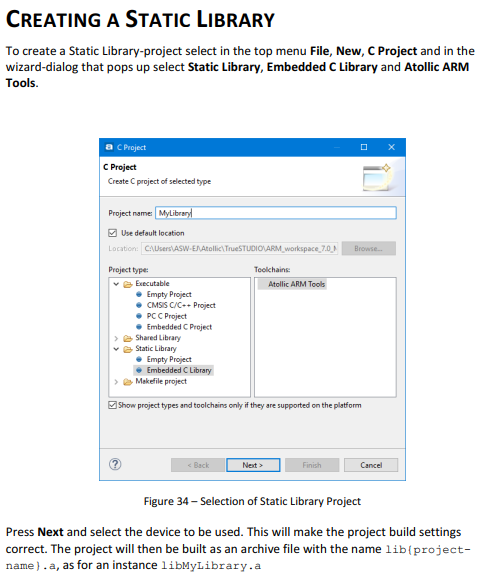I am working on a project using the NUCLEOF103RB development board that interfaces with a fingerprint sensor over UART. I am using the TrueStudio IDE and would like to develop a "library" for the sensor that I would then want to import into my main project. I'm also using the HAL peripheral driver libraries to use the UART peripheral.
I have built static standalone libraries on a linux system using something similar to this: Creating a shared and static library with the gnu compiler (gcc). How does one go about doing something similar on TrueStudio/ARM gcc?
Many thanks!


